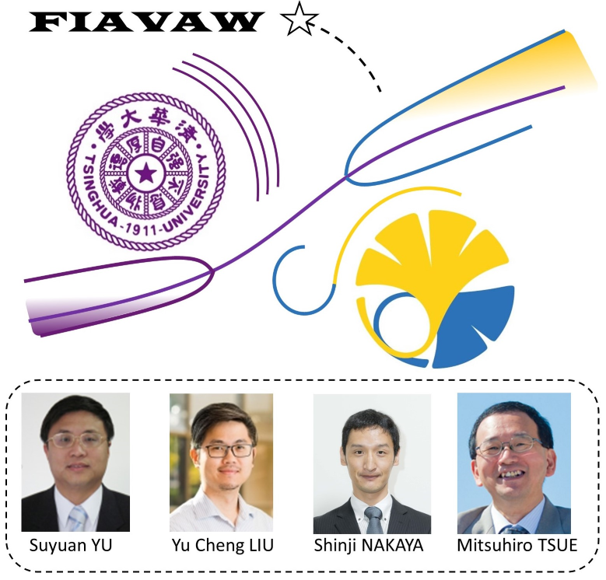Tsinghua University and the University of Tokyo

The team FIAVAW. Credit: Liu Yucheng.
"The FIAVAW project was successfully selected as the first international collaboration project in the area of combustion to be implemented onboard the China Space Station. Through such collaboration between Tsinghua and UTokyo, the participants have learned from the diversity of culture and shared the potential impact on the community. The results from this project can have a potential impact on the fundamental understanding of the flame instabilities in a mixing layer, which is one of the most important and relevant scientific problems in the control of many energy systems." - Suyuan Yu, Project Coordinator
AWARDS
China Space Station
The project "Flame Instabilities Affected by Vortices and Acoustic Waves (FIAVAW)" has been awarded in the first round of the China Space Station opportunity in 2019. It was jointly applied and will be jointly implemented by two institutions from two countries, which are: Tsinghua University from China and the University of Tokyo from Japan.
The FIAVAW project targets the most fundamental problem of flame instabilities in practical propulsion and energy systems. With the ideal environment provided by China Space Station, removing buoyancy-driven instabilities in a long-duration experiment becomes possible. The team collectively utilizes the experiences for experimental microgravity combustion research to form the design of their space experiments, with the hope to tackle problems in burner design, optical diagnostics, and combustion theory.
News
- The third research seminar on the FIAVAW Project and International Forum of Microgravity Combustion Research was held (22 April 2021)
- A research seminar for the FIAVAW project has been successfully held (11 May 2020)
Activities
- Third Research Seminar of Tsinghua-UTokyo International Collaboration on FIAVAW Project and International Forum of Microgravity Combustion Research (22 April 2021)
- 2nd Research Seminar of Tsinghua-UTokyo International Collaboration on FIAVAW Project (11 May 2020)
- 1st Research Seminar of Tsinghua-UTokyo International Collaboration on FIAVAW Project (6 December 2019)
Publications
- T. Chen, Y.C. Liu, " Effects of gravity level on morphology of laminar double flames ", Proceedings of the ASME 2019, IMECE 2019-11051, doi: 10.1115/IMECE2019-11051.
- T. Chen, Y.C. Liu, " On the propagation of partially premixed flame spanning a wide range of gravity levels ", AIAA Propulsion and Energy Forum, AIAA 2020-3903. doi: 10.2514/6.2020-3903.
- T. Chen, S. Yu, Y.C. Liu, " Effects of pressure on propagation characteristics of methane-air edge flames within two-dimensional mixing layers: A numerical study ", Fuel 301 (2021) 120857. doi: 10.1016/j.fuel.2021.120857.

